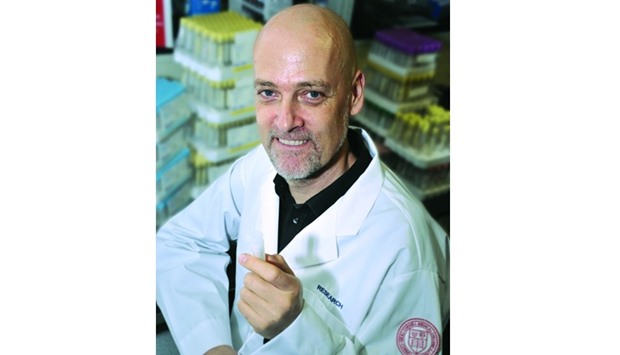A team of researchers led by WCM-Q’s Dr Karsten Suhre, professor of physiology and biophysics, analysed the genetic data of more than 1,300 individuals from Europe, Asia and the Middle East and identified over 450 genetic variants, many of which are involved in serious diseases.
The project conducted the world’s first GWAS (genome-wide association study) to analyse more than 1,100 proteins. No previous study of this kind has analysed such a large cohort of so many different proteins.
Dr Suhre’s research aimed to understand in detail the many complex chemical processes involved in translating the information within genes into the actual physical characteristics of diseases.
Discovering the secrets of these intricate chemical processes – known as ‘pathways’ - is essential to provide a basis for the development of a new generation of drug therapies and more effective diagnostic tools for a host of complex diseases.
Dr Suhre said: “Since the human genome was first mapped in its entirety in 2003, researchers have been working to understand the function of every gene in our body so that one day we can use this knowledge to truly cure complex diseases, like diabetes and cancer.
“However, to translate this knowledge of the human genome into new drugs or treatment, it is not enough to simply know which genes are involved in a disease. Rather, we need to understand the roles that disease-associated genes play in the pathways that lead to disease.
"So the challenge for medical science in no longer to simply find out what genes are involved in which disease but to work out precisely how they are involved.”
Dr Suhre said that human genome essentially acts as a series blueprints that tell the body how to produce the approximately 20,000 different proteins-the building blocks of our body. In recognition of this, the research aimed to understand how variation in genes influences the proteins that are made from them and how this leads to disease.
To achieve such a large-scale study the researchers had to bring a protein measurement tool capable of handling very high volumes of data to Qatar for the very first time. The study marks the very first time the tool has ever been used outside of the US. This platform is now available for use by all researchers in Qatar.

Dr Karsten Suhre's research aimed to understand in detail the many complex chemical processes involved in translating the information within genes into the actual physical characteristics of diseases.
A study by Weill Cornell Medicine-Qatar (WCM-Q) researchers has revealed many previously unknown links between genetic variations and a series of debilitating conditions, including Alzheimer’s disease, heart disease, autoimmune disorders and cancer.
